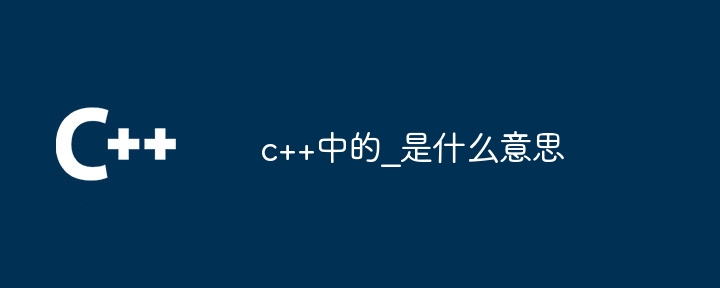
The "_" symbol in C is used to: 1. Handle function parameters that conflict with keywords; 2. Mark unused variables; 3. Namespace qualification; 4. Macro preprocessor; 5. Anonymous union or enumeration member.

The "_" symbol in C
The "_" symbol in C is also called the underscore, It has the following uses:
1. Function parameters
2. Unused variables
_i = 0;
3. Namespace qualification
using namespace std; cout << _ _ a;
4. Macro preprocessor
#define MACRO(x) _x_
##5. Anonymous union or enumeration
Note: Although the underscore has a specific purpose in C, But you can still use it to name identifiers. However, it's best to avoid using names that conflict with the compiler's built-in purposes.
The above is the detailed content of What does _ in c++ mean?. For more information, please follow other related articles on the PHP Chinese website!
 What are the differences between c++ and c language
What are the differences between c++ and c language
 Recommended learning order for c++ and python
Recommended learning order for c++ and python
 Cost-effectiveness analysis of learning python and c++
Cost-effectiveness analysis of learning python and c++
 Is c language the same as c++?
Is c language the same as c++?
 Which is better to learn first, c language or c++?
Which is better to learn first, c language or c++?
 The difference and connection between c language and c++
The difference and connection between c language and c++
 C++ software Chinese change tutorial
C++ software Chinese change tutorial
 Cost-effectiveness analysis of learning python, java and c++
Cost-effectiveness analysis of learning python, java and c++




